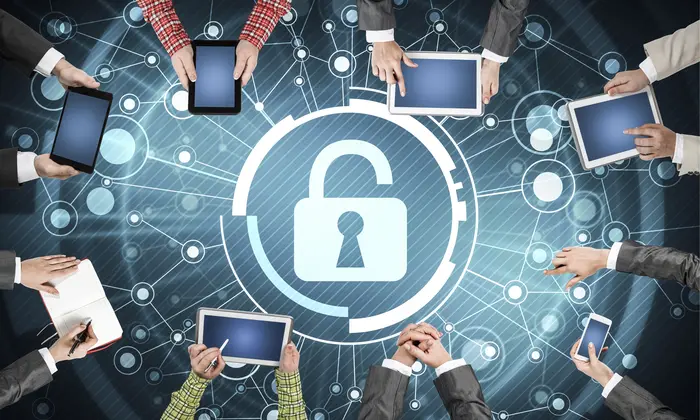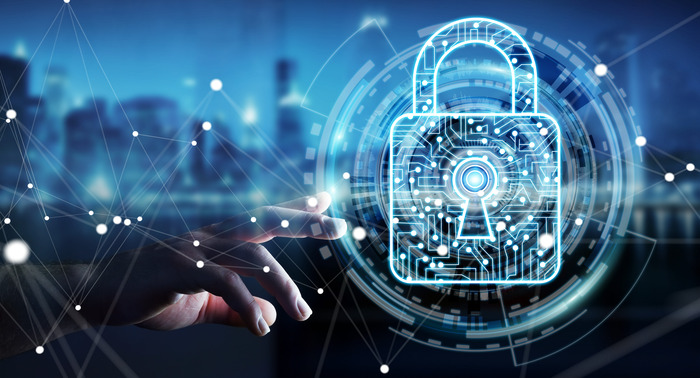From routine email checking to handling electric ledgers to navigating through complex web systems at Fortune 500 companies, all internet users must grapple with the ever-present threat of cyber security. The ever-growing threats of cyber attacks have prompted more than 50% of American businesses to have some type of anti-cyber attack plan in place.
How to Safeguard Your Data
Depending on your setup, a highly functional router and anti-virus software might be enough. But don’t count on if you’re running simple, or especially enterprise business. But with these eight tips, you can take the road to not becoming a cyber attack victim.
- Use Reputable Anti-Virus Software: Install reliable anti-virus software to detect and prevent malicious activities, including phishing scams and fraudulent websites.
- Keep Everything Updated: Regularly update your operating system, programs, and applications to patch vulnerabilities. Enable automatic updates to ensure timely security fixes.
- Secure Your Network: Change your router’s default password, set up a strong WiFi password, and implement other security measures to protect your network from unauthorized access.
- Use a Virtual Private Network (VPN): Employ a VPN to encrypt your network traffic, especially when using public or insecure WiFi networks. VPNs enhance security and protect against man-in-the-middle attacks.
- Be Cautious with Screen Sharing: When sharing your screen during virtual meetings, share specific windows rather than your entire screen to avoid accidentally revealing personal or sensitive information.
- Beware of Phishing Scams: Be vigilant against phishing emails. Avoid clicking on suspicious links and instead, visit the official website directly if you need to log in. Phishing scams often seek personal information and login credentials.
- Avoid Sharing Personal Information: Refrain from sharing personal details in emails or social media, as this information can be exploited to guess or reset passwords. Be cautious about what you share, especially in remote work settings.
- Protect Your Webcam and Create a Comfortable Work Environment: Cover your webcam when not in use to prevent unauthorized access. Additionally, create an ergonomic and comfortable workspace to stay focused and alert, reducing the risk of cyber security slip-ups.
By adhering to these practices, you can significantly enhance your cyber security posture and minimize the risk of falling victim to various online threats.
The information you’ve provided highlights the increasing vulnerability of various industries to cyber attacks, especially in the wake of the COVID-19 pandemic. Here’s a summary of the key points regarding the most susceptible industries and the types of cyber threats they face:
Industries Most at Risk for Cyber Threats
From a one-person business operation to a growing mid-size business, to enterprise companies, data is part of daily operations. Because cyber thieves don’t sleep, these particular businesses must always be on their toes.
Small Businesses
A small business can be anything from a simple startup at home, to a thriving mom-and-pop shop. No matter the scale of a small business, cyber crooks are looking for ways to hack in, especially because many small businesses work with limited cyber security resources making small businesses an easy target for hackers.
Healthcare
From the neighborhood clinic to mega hospitals like Kaiser, the healthcare industry is a multi-billion dollar industry. Because patient records are extensive, healthcare industries have sleepless nights safeguarding their data, especially with recent data breaches.
Government Agencies
Governments around the world have security levels to classify information and sensitive plans among other things. For this reason, government agents are highly prone to ransomware attacks on highly confidential government records. Attacks on government agencies result in substantial recovery costs and downtime, leaving sensitive data exposed.
Financial Institutions
As we speak, someone is conducting online bank transactions, or using the ATM. With so much money flowing in banks and credit unions, they are especially prone to server attacks, data theft, and attacks via app-based trojans and fake banking apps. Exposed sensitive files make financial institutions susceptible to infiltration and theft of personal and financial information.
Online Casinos
From their humble origins in the 1990s from dial-up modems, it’s almost hard to believe that today’s online casinos are worth hundreds of billions of dollars. Today, states like New Jersey and Michigan have legal online gambling, and must spare no expense to safeguard their members’ data to maintain their licenses.
Education
Education, including public and non-profit organizations, deals with lots of data for students and professors. Because of this, the education industry stands out for malware attacks, including ransomware, trojans, spyware, and adware. Increased technology usage in education makes schools vulnerable; attacks can disrupt online education systems affecting students globally.
Energy and Utility Companies
Because energy and gas are essential for daily life, these companies must be aware of Ransomware attacks, leading to significant disruptions in services. Attacks on energy and utility companies can have widespread consequences, impacting national and economic security.
More About Cyber Security
These industries face unique challenges, emphasizing the need for robust cyber security measures, employee training, and proactive strategies to safeguard sensitive data and critical infrastructure. As cyber threats continue to evolve, staying ahead of potential attacks is crucial fororganizations in these sectors.
It is also a good idea to get your employees trained in basic cybersecurity. Online programs, like Lumify Learn online IT courses and cybersecurity training, are easily accessible nowadays, so it shouldn’t be difficult to find one that fits your needs.


